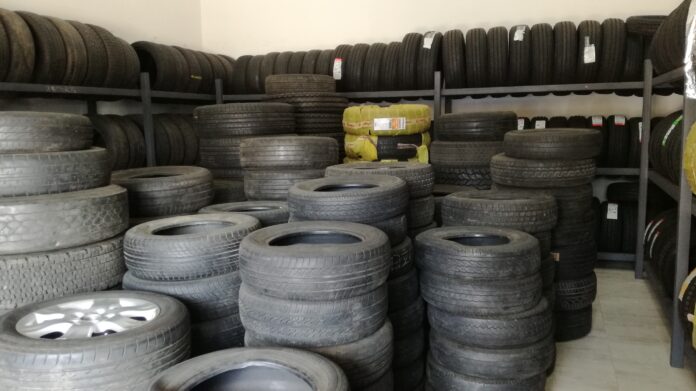
In the quest for cost savings, motorists often explore various avenues to cut down expenses. One such strategy that seems to offer immediate financial relief is the purchase of second-hand tyres. While the allure of a lower price tag is undeniable, the decision to opt for used tyres over new ones carries significant risks, not only to personal safety but also to your wallet in the form of potential fines. Motoring expert Dominic Watt from First Vehicle Leasing, delves into the reasons why buying second-hand tyres could be a decision you might regret.
Unpredictable Tyre History
The most glaring risk associated with second-hand tyres is the uncertainty of their history. When you buy used tyres, you inherit a mystery. These tyres might have been subject to improper maintenance, overloading, or even repairs that compromise their integrity. Without a clear history, you’re essentially gambling with your safety on the road.
Wear and Tear
Even visually inspecting used tyres can’t always reveal the extent of internal damage or the uneven wear that might have occurred. Such imperfections can significantly impair the performance of the tyre, leading to decreased grip, increased stopping distances, and a higher risk of blowouts.
Ageing
Tyres age, even when not in use. Rubber compounds deteriorate over time due to exposure to oxygen and ozone, leading to reduced elasticity and cracking. The age of a tyre, therefore, affects its performance, and with second-hand tyres, you might be closer to the end of its safe lifespan than you think.
Legal Implications
Tread Depth Regulations
In the UK, the legal minimum tread depth is 1.6mm across the central three-quarters of the tyre, around its entire circumference. Second-hand tyres might meet this requirement at the time of purchase but could quickly fall below the legal limit, making your vehicle non-compliant with UK law and susceptible to fines.
Potential for Fines
Driving with tyres that fail to meet legal standards can result in fines of up to £2,500 and three penalty points per tyre. This means if all four tyres are below the legal limit, you could face a fine of £10,000 and twelve penalty points, potentially resulting in the loss of your driving licence.
Insurance Implications
Using second-hand tyres can also affect your car insurance. In the event of an accident, if it’s discovered that your tyres were not compliant with legal standards, your insurance company could refuse to pay out, leaving you with a hefty bill for damages and liabilities.
Economical Considerations: A False Economy
While the initial purchase price of second-hand tyres may seem appealing, the potential costs associated with fines, increased wear, and safety risks can quickly negate any initial savings. Investing in new tyres ensures that you benefit from the latest tyre technology and safety features, offering better value for money in the long run.
Motoring expert, Dominic Watt from First Vehicle Leasing says:
The allure of saving money with second-hand tyres is understandable, but the risks and legal implications far outweigh the potential benefits. For your safety, the safety of your passengers, and the safety of other road users, it’s advisable to invest in new tyres that provide peace of mind, optimal performance, and compliance with UK motoring laws. Remember, tyres are the only point of contact between your vehicle and the road; compromising on their quality is not worth the risk.
Help keep news FREE for our readers
Supporting your local community newspaper/online news outlet is crucial now more than ever. If you believe in independent journalism, then consider making a valuable contribution by making a one-time or monthly donation. We operate in rural areas where providing unbiased news can be challenging. Read More About Supporting The West Wales Chronicle






















